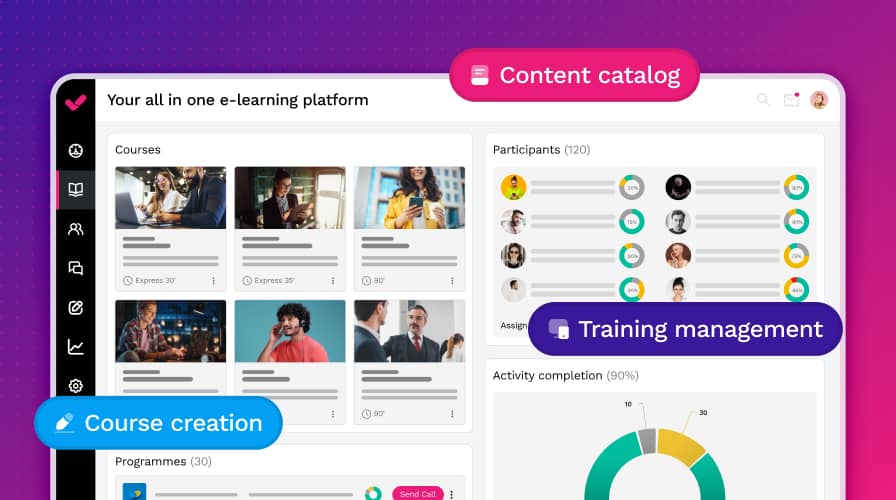

Table of contents
What is the 70-20-10 model?
The 70-20-10 Model is an approach that recognizes the importance of combining different forms of learning to promote comprehensive personal development. This model proposes the following distribution of training:
- 70% of learning through practical experience and job performance.
- 20% of learning through interaction and social collaboration with colleagues.
- 10% of learning through formal instruction, such as training, courses, or structured educational programs.
When did the 70-20-10 model emerge?
The 70-20-10 model was developed in the 1980s by Morgan McCall, Robert Eichinger, and Michael Lombardo at the Center for Creative Development at the University of South Carolina. These researchers studied how high-performing leaders acquired and developed their skills in the workplace.
Based on their observations, the researchers developed the theory that effective learning was not limited to formal instruction but also involved practical experience and social learning.
The 70-20-10 approach seeks to balance and maximize different training methods to achieve optimal results and continuous learning in a company.
Benefits of the 70-20-10 model
The 70-20-10 model offers several benefits for learning and development in educational and work environments. Here are some advantages of this learning model:
- Contextualized learning: Practical experience provides an opportunity to directly apply knowledge in real situations, facilitating deeper understanding and contextualized learning.
- Promotion of collaboration: The 20% component of social interaction promotes collaboration among peers, enriching the training process and fostering teamwork.
- Flexibility and adaptability: By recognizing that learning occurs in different contexts, this model adapts to individual needs and provides flexibility, allowing for greater personalization of learning.
Thanks to these benefits, the 70-20-10 model is used by companies worldwide.
Evaluation and follow-up in the 70-20-10 model
In the 70-20-10 model, evaluation, and monitoring play a key role in ensuring effective learning. How can this work at each stage?
- Experience evaluation: Performance in real situations can be evaluated to identify areas for improvement and provide feedback to promote growth and continuous development.
- Evaluation of social interaction: This is done through observing active participation, collaborative learning, and knowledge exchange among participants.
- Formal instruction evaluation: Different methods, such as exams or practical assessments, can be used in this stage to measure understanding and application of acquired knowledge.
How to implement the 70-20-10 model in your company?
Implementing the 70-20-10 model can be an effective process for fostering comprehensive learning. Here are some key steps to achieve it:
- Identify learning needs and objectives.
- Encourage practical experience.
- Promote social interaction among employees.
- Design training programs tailored to your workforce.
- Use HR technology tools to facilitate access to learning.
- Periodically evaluate the impact and make adjustments as necessary.
With the implementation of this learning model, you will create an environment conducive to skill and competency development in your organization.
Still unsure where to start? isEazy LMS offers you the training platform you need and the learning experience your employees want. Try it for free!
E-learning training for companies made easy
Amazing, easy-to-set-up software to easily solve all your training needs
Request a demo Try it free










